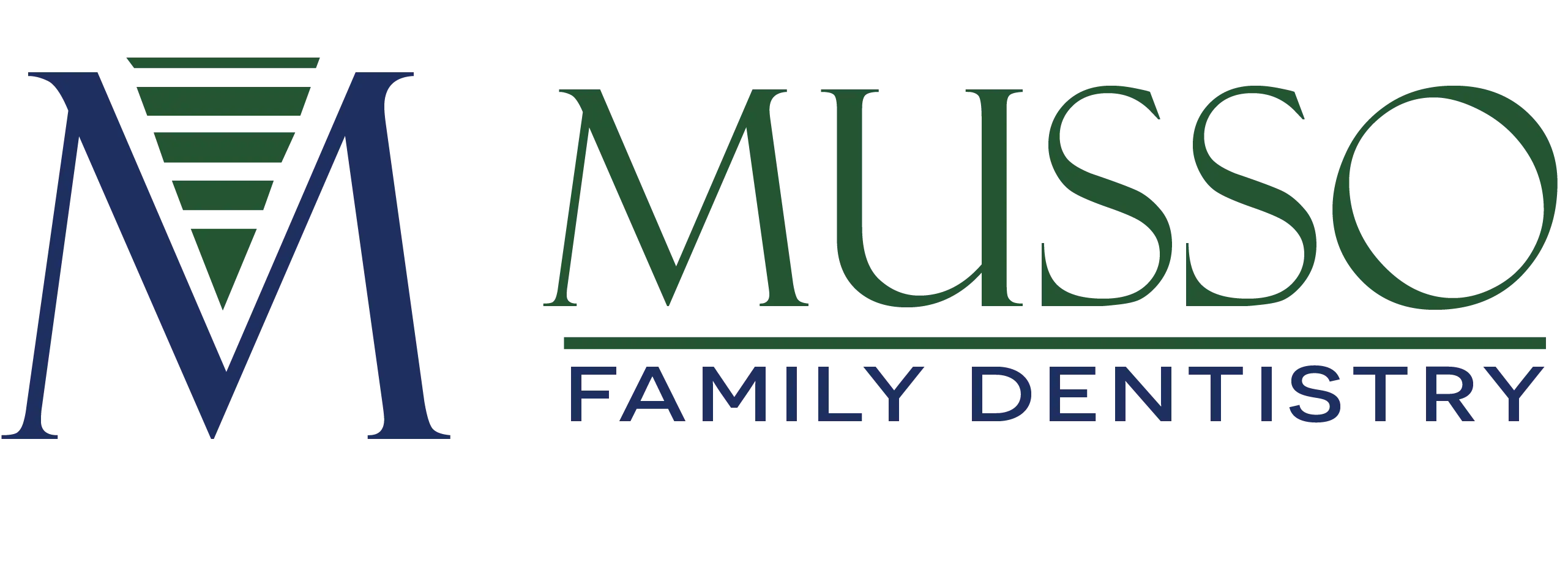Gum disease is a sneaky adversary in the battle for oral health. It often starts unnoticed, lurking beneath the surface until it manifests as swollen gums or persistent bad breath. What many people don't realize is that this common condition can lead to serious complications if left unchecked. By prioritizing daily care and understanding how to keep your gums healthy, you can play an active role in preventing gum disease.
For residents seeking top-notch dental cleanings and exams in Garland, TX, learning about effective prevention strategies becomes even more essential. This blog will guide you through practical steps to ensure your gums remain strong and healthy while highlighting the importance of professional dental care along the way. Let's dive into creating a winning routine for vibrant gum health!
What is Gum Disease and Why is it Important to Prevent?
Gum disease, also known as periodontal disease, is an infection of the tissues that support your teeth. It begins with plaque buildup along the gumline and can progress to more severe stages if not addressed. This condition affects millions of people worldwide and often goes unnoticed in its early stages.
Preventing gum disease is crucial because it poses more than just dental problems. Left untreated, it can lead to tooth loss and has been linked to serious health conditions like heart disease and diabetes. The inflammation caused by gum infections may contribute to systemic issues throughout the body.
Maintaining healthy gums isn't just about aesthetics; it's essential for overall well-being. Healthy gums help you chew properly, speak clearly, and enjoy a higher quality of life without discomfort or pain from advanced dental issues. Understanding this connection emphasizes why proactive measures are necessary for prevention.
The Importance of Daily Oral Care
Daily oral care is essential for maintaining not just a bright smile, but also overall health. Each day presents an opportunity to combat plaque buildup that can lead to gum disease.
- Brushing your teeth twice daily removes food particles and reduces harmful bacteria. It's a simple yet effective step toward healthier gums and teeth.
- Flossing plays a crucial role in this routine, too. It reaches areas where your toothbrush might miss, ensuring that debris doesn't linger between teeth. Neglecting these spaces can contribute to gum issues over time.
- Using mouthwash adds another layer of protection against germs, freshening breath while promoting gum health.
- By making daily oral hygiene a priority, you create the foundation for stronger gums and better dental visits down the line—especially important when considering dental cleanings and exams in Garland, TX.
Brushing Techniques for Healthy Gums
To achieve healthy gums, mastering the right brushing technique is essential. Start with a soft-bristle toothbrush to avoid damaging your gum tissue.
Angle your brush at 45 degrees toward the gum line. This position helps remove plaque effectively while being gentle on your gums. Use small circular motions rather than harsh back-and-forth strokes.
Spend at least two minutes brushing, ensuring you cover all surfaces of each tooth—outer, inner, and chewing surfaces. Don't forget to gently brush your tongue; it can harbor bacteria that contribute to gum disease.
Replace your toothbrush every three months or sooner if the bristles fray. Regularly changing brushes ensures optimal cleaning efficiency and promotes better oral health.
By incorporating these techniques into your daily routine, you're taking proactive steps towards maintaining strong gums and preventing issues down the road.
Flossing and Its Role in Preventing Gum Disease
Flossing is an essential part of oral hygiene that many people overlook. While brushing removes plaque from the surfaces of your teeth, flossing reaches areas a toothbrush simply can't touch.
The spaces between your teeth are prime spots for food particles and plaque to accumulate. This buildup can irritate your gums, leading to inflammation and gum disease if not addressed.
Incorporating floss into your daily routine can significantly lower the risk of gingivitis and more severe periodontal issues. It's best to use about 18 inches of dental floss, winding it around your fingers for better control.
Gently slide the floss between each tooth, forming a C-shape against the side. This technique ensures you're cleaning both sides effectively without damaging sensitive gum tissue.
For those who find traditional floss challenging, consider alternatives like interdental brushes or water flosser devices. Each option contributes positively toward maintaining healthy gums and preventing gum disease.
Mouthwash and Other Products for Maintaining Gum Health
Mouthwash can be a powerful ally in your fight against gum disease. Look for an antibacterial formula that targets plaque and gingivitis. Rinsing daily helps reduce harmful bacteria, leaving your mouth fresher.
Consider products with fluoride as well. These strengthen enamel and combat cavities, which indirectly support gum health by reducing the overall burden on your teeth.
Additionally, some specialized gels and ointments are designed to soothe inflamed gums. They often contain ingredients like aloe vera or tea tree oil, known for their healing properties.
Chewing sugar-free gum also aids saliva production. Saliva naturally neutralizes acids and washes away food particles, creating a less hospitable environment for bacteria.
Always choose oral care products wisely; reading labels ensures you're picking options that genuinely promote gum health rather than just fresh breath.
The Connection Between Diet and Gum Disease
Your diet plays a significant role in gum health. What you eat can either support or undermine your oral hygiene efforts.
Foods high in sugar and refined carbohydrates feed harmful bacteria in the mouth. These bacteria produce acids that can erode gum tissue over time, leading to gum disease.
On the other hand, nutrient-rich foods like fruits, vegetables, nuts, and whole grains strengthen your immune system. This helps it fend off infections that contribute to gum problems.
Calcium and vitamin D are vital for maintaining bone density around teeth. Incorporating dairy products or leafy greens into your meals can provide these essential nutrients.
Stay hydrated as well; water washes away food particles and bacteria. A balanced diet not only nourishes your body but also keeps your gums healthy and resilient against disease. Contact us today to learn more.
Professional Cleanings and Check-Ups – How Often Do You Need Them?
Regular professional cleanings and check-ups are essential for maintaining optimal oral health. Most dental experts recommend visiting your dentist at least twice a year. These visits help detect early signs of gum disease, cavities, and other issues that might go unnoticed.
During these appointments, dental hygienists remove plaque and tartar buildup from hard-to-reach areas. This cleaning process is crucial because even with excellent daily care, some bacteria can linger in hidden spots.
For individuals at higher risk—like those with diabetes or a history of gum disease—more frequent visits may be necessary. Your dentist will tailor recommendations based on your specific needs.
Check-ups also provide an opportunity for personalized advice on improving your home care routines. Through these sessions, you gain insights into better brushing techniques or the right products to use for your unique situation.
Additional Tips for Keeping Your Gums Healthy
- Consider using a soft-bristle toothbrush. It's gentle on your gums yet effective at removing plaque. Replace your toothbrush every three to four months, or sooner if the bristles become frayed.
- Stay hydrated throughout the day. Water helps wash away food particles and keeps your mouth moist. A dry mouth can lead to gum problems, so drink plenty of fluids.
- Chewing sugar-free gum can stimulate saliva production, which is beneficial for oral health. Saliva neutralizes acids and provides essential minerals for teeth and gums.
- Avoid tobacco products—they significantly increase the risk of gum disease. If you're currently using them, seek resources that can help you quit.
- Manage stress levels effectively; high-stress situations may contribute to poor oral hygiene habits. Finding relaxation techniques that work for you could improve both mental well-being and gum health over time.
Conclusion
Gum disease is a serious condition that can lead to tooth loss and other health issues if left unchecked. Prevention is key, and it starts with good daily care. Establishing a routine of brushing, flossing, and using mouthwash will help keep your gums healthy.
Brushing techniques matter too. Be sure to use gentle circular motions rather than aggressive side-to-side scrubbing. This helps avoid damaging the gum tissue while effectively removing plaque.
Flossing shouldn't be overlooked either; it's essential for getting rid of debris between teeth where toothbrushes can't reach. Incorporating this simple step into your daily regimen can significantly reduce the risk of developing gum disease.
Don't forget about mouthwash and additional products designed specifically for maintaining gum health. These can complement your routine by targeting bacteria more effectively.
Diet plays an important role in oral health as well. Foods rich in vitamins C and D promote stronger gums, while sugary snacks can contribute to plaque buildup, leading to potential problems down the line.
Regular dental cleanings and exams are vital, too—especially in Garland, TX, where you have access to excellent dental care providers who can monitor your gum health closely. Aim for professional cleanings at least twice a year or as recommended by your dentist based on individual needs.
Other tips include quitting smoking, managing stress levels, and staying hydrated—all factors that support better oral hygiene practices over time.
Taking these steps seriously today means you'll set yourself up for healthier gums tomorrow. Investing time in your oral care pays off immensely in the long run!
Regular dental cleanings and exams are the cornerstone of a healthy smile and contribute to overall well-being. Visit Musso Family Dentistry at 513 W. Centerville Rd, Garland, TX 75041, or call (972) 840-8477 to book your dental cleaning and exam. Experience the benefits of a healthy, radiant smile and the confidence that comes with it.

